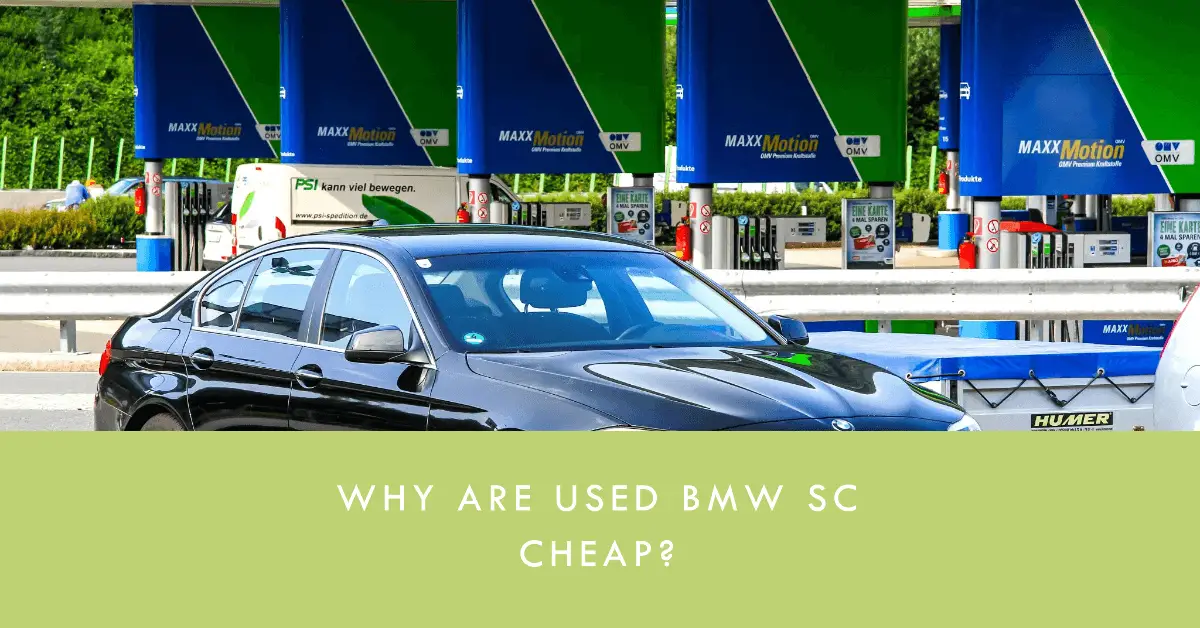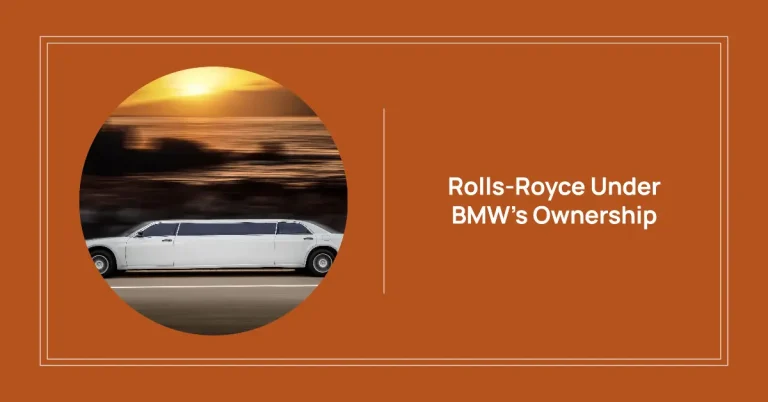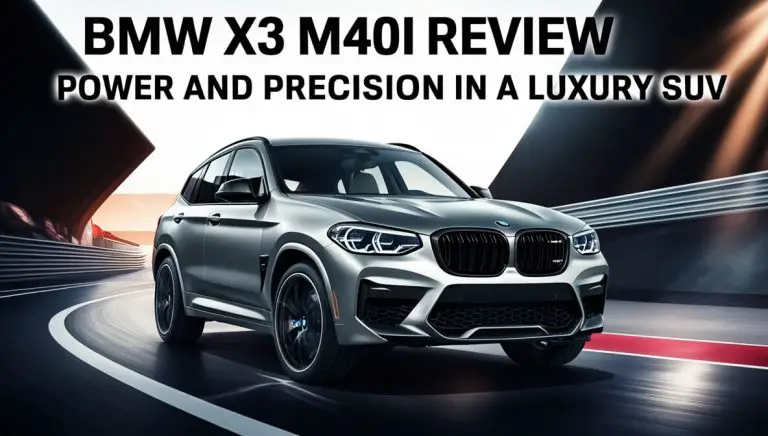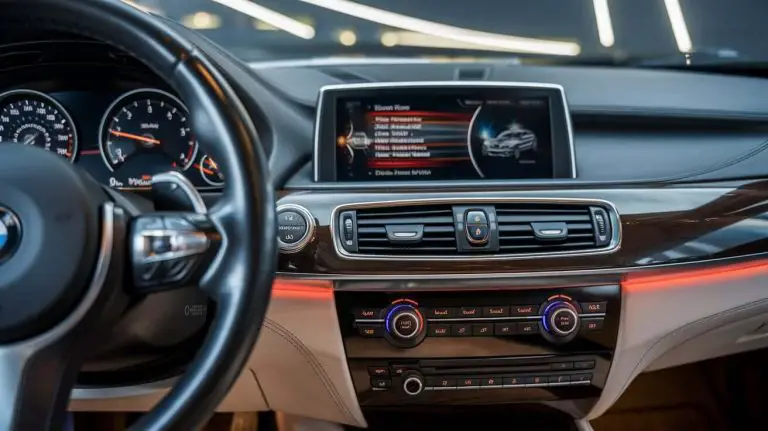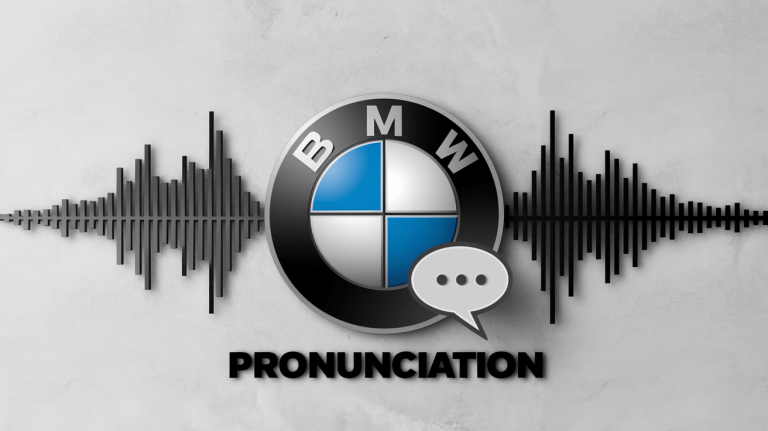Why Are Used BMW SC Cheap? the Factors Behind the Lower Prices
Speeding down a winding coastal road in a sleek BMW convertible as the engine growls and the wind whips through your hair – it’s an intoxicating experience BMW has cultivated for decades.
BMW stands at the top of the automotive food chain when it comes to prestige and driving dynamics. New BMW sports cars like the Z4, M3, and M5 command eye-watering prices usually reserved for the financially blessed.
But surprisingly, just a few years later, used versions can be found for a fraction of their original MSRP. Why exactly are used BMW sports cars so inexpensive compared to the prestige the brand carries?
In this deep dive, we’ll explore the key reasons used BMW performance models become so affordable including:
- Sky high depreciation
- Costly maintenance requirements
- Questionable reliability
- Niche appeal limiting demand
- Rising ownership costs
Understanding these factors that drive down used BMW prices can help shoppers negotiate good deals. So let’s dig into each of these key factors.
High Depreciation Slashes Used BMW Prices
One of the main forces keeping used BMW prices grounded is the high depreciation rate luxury automakers carry. It’s not uncommon for a new BMW to lose 30% or more of its value in the first 12 months.
Kelley Blue Book data shows the BMW Z4 roadster drops nearly 50% after just 1 year. The high-performance M3 and M5 shed over 30% during the same period.
This is over 2-3 times the depreciation of mainstream brands like Toyota or Honda.
Several factors contribute to the rapid depreciation of new BMWs:
- High Initial Price – New BMWs start with premium price tags before options. This gives them farther to fall in dollar terms.
- Technology Advances – New technology and model refreshes quickly make older BMW models seem dated.
- Desirability Declines – The latest BMW designs capture attention most, while dated models lose appeal.
- Leasing Popularity – Most luxury cars are leased, putting 3 year old models on the used market en masse.
As current BMW models roll off leases and hit the used market, their values plunge, unable to hold the original inflated MSRPs.
This high depreciation ripples through to depress values of even 5 and 10 year old used BMW models. The steep depreciation curve is one major factor keeping used BMW prices surprisingly reasonable relative to the prestige of the brand.
Costly Maintenance Hurts Used Values
In additional to rapid depreciation, used BMW values are also negatively impacted by the brand’s reputation for costly maintenance and repairs.
BMW engines are engineered for optimal driving dynamics and performance. But this precision comes at a price when maintenance and repairs are needed. Parts and labor rates at BMW dealerships come at a premium.
Minor issues on mainstream cars become expensive repairs when out of warranty on BMWs. For example, a water pump replacement can run over $1,000. BMW recommends flushing and replacing major fluids every 2-3 years – at $200-300 a pop.
And as BMW engines accumulate miles, major issues like oil leaks, gasket failures, and timing chain guides wearing out become more common. BMW forums are filled with complaints about repair bills running $5,000+ for aging issues like these.
At over 10 years old, many BMWs have changed hands to second or third owners who skipped preventative maintenance. These cars turn into money pits – a used car buyer’s nightmare.
Dealers recognize maintenance burdens increase as BMWs age. This depresses trade-in offers. BMW maintenance costs, both actual and perceived, hurt used values. Budget-minded shoppers keep used prices low by opting for other brands.
Reliability Problems Scare Away Buyers
Along with maintenance costs, driver confidence in BMW long-term reliability also erodes over time, further reducing used car values.
In quality studies by Consumer Reports and J.D. Power, BMW consistently ranks below the industry average when it comes to predicted reliability.
Some common problem areas on older BMW models that require expensive repairs include:
- Oil leaks from gaskets and seals
- Electrical glitches and check engine lights
- Cooling system failures
- Fuel pump and injector issues
- Power steering leaks
- Transmission computer problems
- Timing chain tensioner failures
As BMW engines age, parts wear out and plastic pieces become brittle. Electrical issues also creep up over time. While most modern cars have some reliability shortcomings, BMW’s problems stand out with greater frequency and repair costs.
Their reputation for questionable long-term durability suppresses demand from used car shoppers. This lower market demand allows used BMWs to be purchased for lower prices than their pedigree would suggest. But new BMW owners beware – the vehicle you adore now may become a maintenance headache down the road.
Niche Appeal Limits Used BMW Market
New BMWs have broad allure between their luxury features, refined interiors, and class-leading performance. But once on the used market for several years, BMW’s more narrow buyer base begins to drag down resale value potential.
Compared to luxury autos from Lexus, Acura and Infiniti, BMW focuses more exclusively on driving dynamics and performance at the expense of ride comfort. Similarly, BMW interiors favor sporty aesthetics over opulent luxury features.
While this driver-focused approach resonates with BMW’s target audience, it also limits mass market appeal in the used market once the new car sheen wears off. The niche appeal of BMW’s uncompromising driving experience contains the pool of used car shoppers.
Further limiting demand is the back seat and storage space compromises inherent in BMW coupes, convertibles, and performance-focused sedans. Family car buyers and those who value practicality over performance steer clear of many used BMW offerings.
With demand contained to BMW enthusiasts seeking a driving experience, used prices fall to more affordable levels for the average driver to enjoy German precision. But the trade-off is higher cost of ownership to keep these machines running their best.
Rising Ownership Costs Deter Buyers
In addition to the repair and maintenance concerns outlined already, used BMW shoppers must also prepare for higher ownership costs overall:
- Insurance Premiums – Insuring a used BMW is more expensive due to higher performance, repair costs, and accident rates. Premiums can be 50-100% higher.
- Fuel Costs – High-output BMW engines inherently consume more fuel than efficient mainstream sedans.
- Tire Replacement – Run-flat tires standard on many BMWs wear faster and cost $300+ each to replace.
- Brake Jobs – High performance brake components need replacement more frequently at $1,000+ per service.
- BMW-Mandated Service – Some maintenance like fluid changes is only recommended at BMW shops at premium rates.
While a buyer may score what seems like a deal on the used BMW purchase price, these elevated ownership costs eat into any savings. For those on a tight budget, ownership costs are an important factor limiting used BMW demand and prices.
Should You Buy a Used BMW Sports Car?
Given their reputation for steep depreciation, expensive repairs, and questionable reliability, used BMW sports cars have become surprisingly affordable compared to the luxury status the brand carries.
For the right buyer willing to budget for premium fuel and maintenance, a used BMW can be a gateway into exotic car ownership at an attainable price. But more practical buyers are best served waiting until BMWs fall even lower in value, then minimizing miles driven to control costs.
While no longer the shimmering status symbol a new BMW represents, used models become attainable for owners to enjoy BMW’s vaunted driving dynamics and performance – if they have the means and tolerance for expensive upkeep.
For those set on buying a used BMW sports car, the best approach is purchasing the newest, lowest mileage example in your budget. Avoid any models with spotty maintenance records. And be sure to budget roughly $2,000 per year for preventative maintenance and surprise issues.
While hardly cheap to own, a well bought used BMW provides access to one of the purest driving experiences money can buy. Just be sure to do your homework and have repair reserves on standby before taking the plunge into used BMW ownership. The thrill of backroad drives in a Bimmer might just be worth the premium cost.

